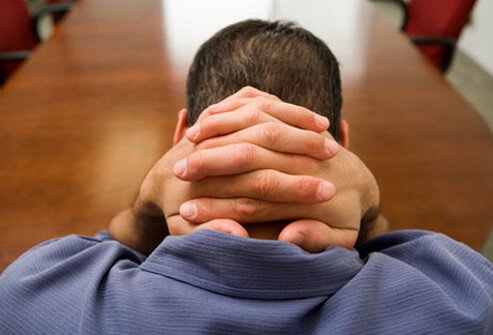Is erectile dysfunction a normal part of aging?

Erectile dysfunction isn’t necessarily a normal part of aging. Fix erectile dysfunction at 50 by making lifestyle changes, getting psychological help, getting medical or mechanical treatment, or considering surgery.
The way that you treat erectile dysfunction (ED) at any age ultimately depends on the cause. Each cause will have its own treatment.
Luckily, there are medical and mechanical steps that you can take on a case-by-case basis to achieve an erection when you want it. These treatments will work as long-term solutions if you can’t find or treat a distinct underlying cause.
Erectile dysfunction isn’t necessarily a normal part of aging — so don’t let this condition get in the way of having a happy and healthy sex life.
Even though ED isn’t, strictly speaking, a normal part of aging, your odds of developing ED do increase as you get older. By 50 years old, there’s at least a 50% chance that you’ve experienced some bouts of ED. In fact, more than 50% of all males between the ages of 40 and 70 years report some level of erectile dysfunction.
There are a few reasons for this. First, it’s normal for testosterone levels to decrease with age. This natural process begins when you’re 30, and levels will continue to decrease — at a rate of about 1% a year — for the rest of your life. This hormone is an important part of your sex drive.
Your odds of getting a disease that causes ED as a side effect also increase as you age. This means that if you’re experiencing ED at 50, you should talk to your doctor as soon as possible — you may need to be treated for a severe underlying condition.
Keep in mind that some men are capable of healthy sex lives — without any sustained ED — well into their eighties. You don’t need to simply accept this condition as a new part of your life — seek medical help.
Erectile dysfunction causes
Erectile dysfunction has both physical and psychological causes. Physical causes can include medical conditions, the use of certain prescriptions, and lifestyle choices.
Psychological causes can develop at any time. They can be related to a number of problems, including:
Medical conditions that can cause ED include:
Sometimes, a medication that you need to treat a different condition will lead to ED. If this is the case with one of your prescriptions, your doctor should have already discussed this side effect with you.
Some medications that can cause ED include:
Your ED could also be due to an unhealthy lifestyle. Certain activities and physical states put you at an increased risk of developing ED.
These include:
What are good lifestyle changes for erectile dysfunction?
A healthy lifestyle will make it easiest for you to get an erection. Eat a well-balanced diet and exercise regularly. Also limit any unhealthy activities like smoking, drinking, and drug use.
Simple changes like these could be enough to cure your ED, especially if it’s not due to a much more serious condition.
When should you get psychological help for your ED?
Therapy and counseling services can be great treatments for many of the psychological causes of ED. Talking to someone about your worries and stress is a proven way to manage these concerns. It’s sometimes enough to get your sex life back on track. You can go to sessions by yourself or with your partner.
Talking to a therapist can even be helpful if your ED has a physical cause. There are many emotions — like frustration— that are increasingly associated with this condition. Therapy can help you process these new realities.
What are medical treatments for erectile dysfunction?
There are both orally taken and self-injected medications that you can use to get an erection. You should administer either shortly before you want to engage in sexual activity.
You’ll usually be prescribed the oral option first. These are phosphodiester inhibitors that are meant to modify your smooth muscles. They’re effective in 65% to 70% of people with ED and include:
If these don’t work you can also try alprostadil. Before sex, you either insert this drug into your urethra or administer an intracavernous injection into your penis.
Make sure you seek medical help if you notice any negative side effects from these medications (for example, if you experience an erection that lasts longer than four hours).
What are mechanical treatments for erectile dysfunction?
There are also mechanical solutions that are safe at any age. These include devices that you use every time you want an erection.
Vacuum devices use suction to pull blood into your penis. These are best when you have trouble getting erect. Flexible, elastic rings are also useful for maintaining an erection. They fit onto the base of your erection and keep blood from prematurely leaving your penis.

SLIDESHOW
Sex-Drive Killers: The Causes of Low Libido See Slideshow
When do you need surgery for erectile dysfunction?
Surgery could be the right solution to your ED when other treatment methods are unsuccessful. Unlike mechanical and medical solutions, this treatment is permanent.
The surgery will implant a penile prosthesis so you no longer need to rely on your own biological systems to get an erection. The prosthetics are usually semi-rigid silicone rods or an inflatable device with multiple chambers that fill up with saline when you need them.
There’s less than a 5% chance of infection or malfunction after the surgery. Additionally — of the couples that have tried this solution — over 95% of them report success and satisfaction. The average recovery time is eight weeks.
What are natural remedies for erectile dysfunction?
There are a wide variety of products that are marketed as natural cures for erectile dysfunction. To date, none of these are approved by the FDA. Some scientific studies have been conducted on a handful of substances — but all of the data is preliminary and few are very encouraging.
Ginseng is the only substance that has shown some efficacy in a meta-analysis of scientific trials. The same analysis found no conclusive proof for the effects of both saffron or T. terrestris.
Talk to your doctor before trying any natural remedies — some can cause adverse reactions when combined with other medications. The FDA has also issued consumer warnings and alerts about “natural” concoctions with unregulated amounts of tested medications — specifically the active ingredients in regulated products like Viagra.
When should you see your doctor for erectile dysfunction?
It’s best to get your erectile problems checked out by a doctor whenever they become frequent. Some causes of ED are also life-threatening when left untreated.
Keep in mind that you deserve a healthy sex life at any age. Get medical help whenever you and your partner begin to experience a decreased quality of life from your bouts of erectile dysfunction.
Latest Men’s Health News
Daily Health News
Trending on MedicineNet
Medically Reviewed on 4/28/2022
References
American Urological Association: “Erectile Dysfunction: AUA Guideline (2018).”
Cleveland Clinic: “Low Testosterone (Male Hypogonadism).”
Drugs: “Herbal Dietary Supplements for Erectile Dysfunction: A Systematic Review and Meta-Analysis.”
European Urology Focus: “Sexual Dysfunction and Bother Due to Erectile Dysfunction in the Healthy Elderly Male Population: Prevalence from a Systematic Review.”
Merck Manual Professional Version: “Erectile Dysfunction.”
National Institute of Diabetes and Digestive and Kidney Diseases: “Symptoms and Causes,” “Treatment.”
Urology Care Foundation: “Erectile Dysfunction (ED).”